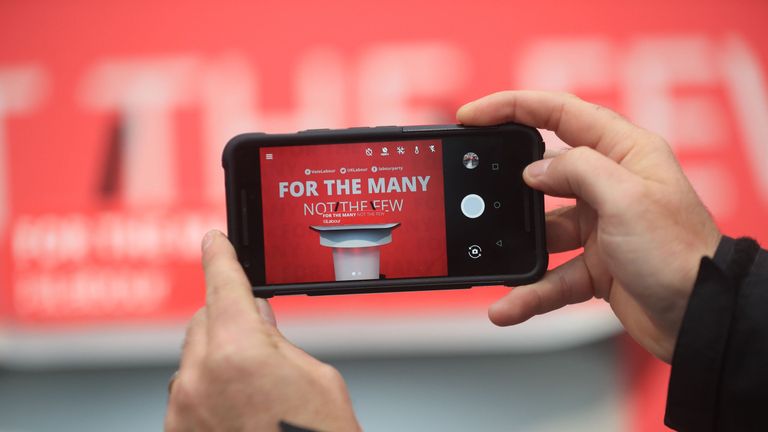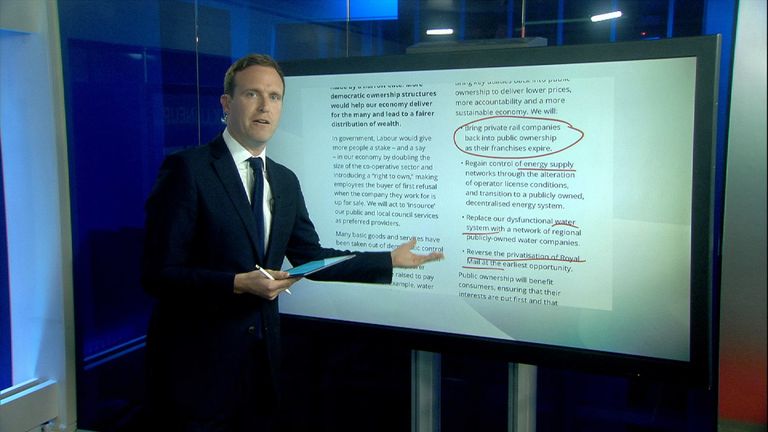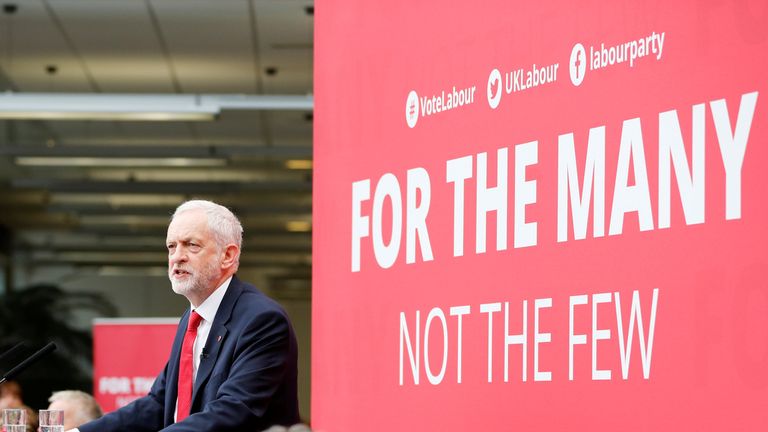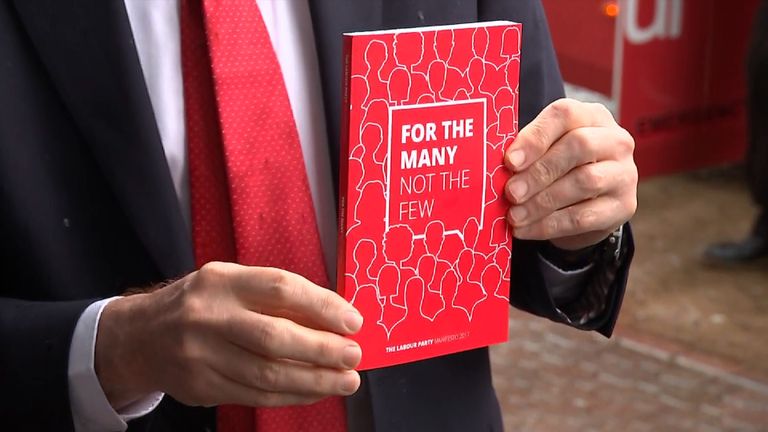Labour manifesto: Will party's radical policies win over voters?
The manifesto offers voters a stark choice. But Tamara Cohen asks whether the policies will win over swing voters.
Tuesday 16 May 2017 21:43, UK
I've covered elections where voters tell me they think all the parties are the same. The 2017 campaign is not one of them.
In his £46.8bn manifesto, , with a huge cash injection into hospitals, schools and welfare - paid for with - unashamedly - higher taxes on the better-off.
Much of the programme which was leaked to newspapers last week has made it into the final draft, with a few additions.
But what we hadn't seen last week were the costs, detailed in a separate document.
::
In the intervening days, the proposed nationalisation of the energy firms and railways has grown even more ambitious, and it now extends to water companies, which Labour would take into public ownership.
The tax hikes for the better-off are now clear: a 45p rate of tax for those earning over £80,000 a year and a 50p rate for those earning over £123,000. The party claims income tax will raise them £6.4bn; experts say it will be less.
And in addition to the proposed hikes to corporation tax, the party would also introduce a "high earners' levy" on companies which employ staff earning more than £330,000 a year in order, Mr Corbyn says, to tackle inequality.
The claim that all the measures are "fully costed" is open to challenge. None of the nationalisation plans is included in the balance sheet, although Thames Water alone is worth some £10bn.
::
Also absent is any assessment of what the effects would be of the business taxes on jobs, investment and pension funds - although £3.9bn has been earmarked for "behaviour change".
The Institute for Fiscal Studies say this is a blueprint for state intervention on a scale not seen since the 1970s, and Labour is not disputing it.
Insiders close to Mr Corbyn say his programme is not about class war, it is about creating a better society and that means the wealthy few - around a million people in fact - paying more.
Many users of cash-strapped schools and hospitals or dependent on welfare will heartily agree with it.
The financial winners would be the NHS, which would get £5bn a year, but actually even more would be lavished on free university tuition fees which would cost £11bn a year.
Other tweaks made since the leak last week include the wording on Trident for example - which Mr Corbyn has agreed to renew through gritted teeth.
The exhortation that a prime minister should be "extremely cautious" about using nuclear weapons which could cost millions of lives has been taken out.
The language on immigration has been tightened up to clarify that Labour would end free movement, but there are still no restrictions on numbers.
A manifesto is when a party sets out its stall, but the policies can also come to define it for years to come - whether it was the first minimum wage in 1997 or the "longest suicide note in history" back in 1983.
Some Labour MPs say these policies are firmly in the comfort zone: that voters expect Labour to fund the health service and schools and that as the polls make clear, it is the messenger, not the message which is the problem.
But what's clear from the 124-page document is that on the economic measures at least, this is unadulterated Jeremy Corbyn. And swing voters have a clear choice to make.







